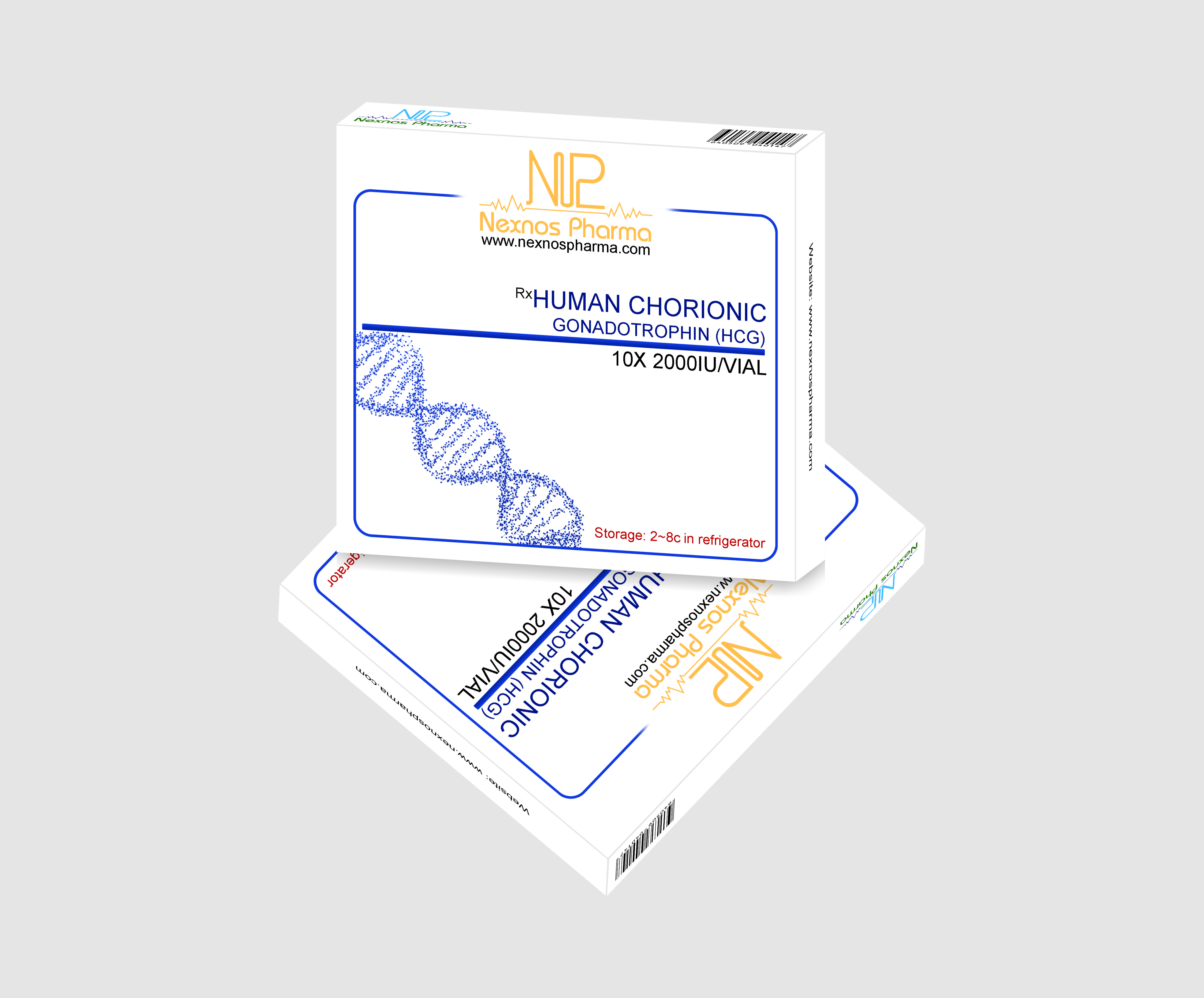
HCG
HCG
* The product should only be used after the doctor/trainer advice.
DESCRIPTION:
Chemical name: Human Chorionic Gonadotrophin
HCG is a hormone that supports the normal development of an egg in a woman's ovary, and stimulates the release of the egg during ovulation.
HCG is used to cause ovulation and to treat infertility in women, and to increase sperm count in men. HCG is also used in young boys when their testicles have not dropped down into the scrotum normally. This can be caused by a pituitary gland disorder.
HCG is given as an injection under the skin or into a muscle. If you use HCG at home, your doctor, nurse, or pharmacist will give you specific instructions on how and where to inject this medicine. Do not self-inject HCG if you do not fully understand how to give the injection and properly dispose of used needles and syringes.
Call your doctor at once if you have any of these signs of a blood clot: pain, warmth, redness, numbness, or tingling in your arm or leg; confusion, extreme dizziness, or severe headache.
Some women using this medicine have developed a condition called ovarian hyperstimulation syndrome (OHSS), especially after the first treatment cycle. OHSS can be a life-threatening condition. Call your doctor right away if you have any symptoms of OHSS: severe pelvic pain, swelling of the hands or legs, stomach pain and swelling, shortness of breath, weight gain, diarhea, nausea or vomiting, and urinating less than normal.
HCG can cause early puberty in young boys. Call your doctor if a boy using this medicine shows early signs of puberty, such as a deepened voice, pubic hair growth, and increased acne or sweating.
Using HCG can increase your chances of having a multiple pregnancy (twins, triplets, quadruplets, etc). A multiple pregnancy is a high-risk pregnancy for the mother and for the babies. Follow your doctor's instructions about any special care you may need during your pregnancy.
Although HCG can help you become pregnant, this medication is in the FDA pregnancy category X. This means that using the medication once you are pregnant can cause birth defects in the baby. Do not use HCG if you are pregnant. Tell your doctor right away if you become pregnant during treatment.
You should not use this medication if you have ever had an allergic reaction to HCG, or if you have: early puberty (also called precocious puberty); or a hormone-related cancer (such as prostate cancer).
Before receiving HCG tell your doctor if you are allergic to any drugs or if you have:
a thyroid or adrenal gland disorder;
an ovarian cyst;
premature puberty;
cancer or a tumor of the breast, ovary, uterus, prostate, hypothalamus, or pituitary gland;
undiagnosed uterine bleeding;
heart disease;
kidney disease;
epilepsy;
migraines; or
asthma.
If you have any of these conditions, you may need a dose adjustment or special tests to safely use HCG. Although HCG can help you become pregnant, this medication is in the FDA pregnancy category X. This means that using the medication once you are pregnant can cause birth defects in the baby. Do not use HCG if you are pregnant. Tell your doctor right away if you become pregnant during treatment. It is not known whether HCG passes into breast milk. Do not use HCG without telling your doctor if you are breast-feeding a baby.

